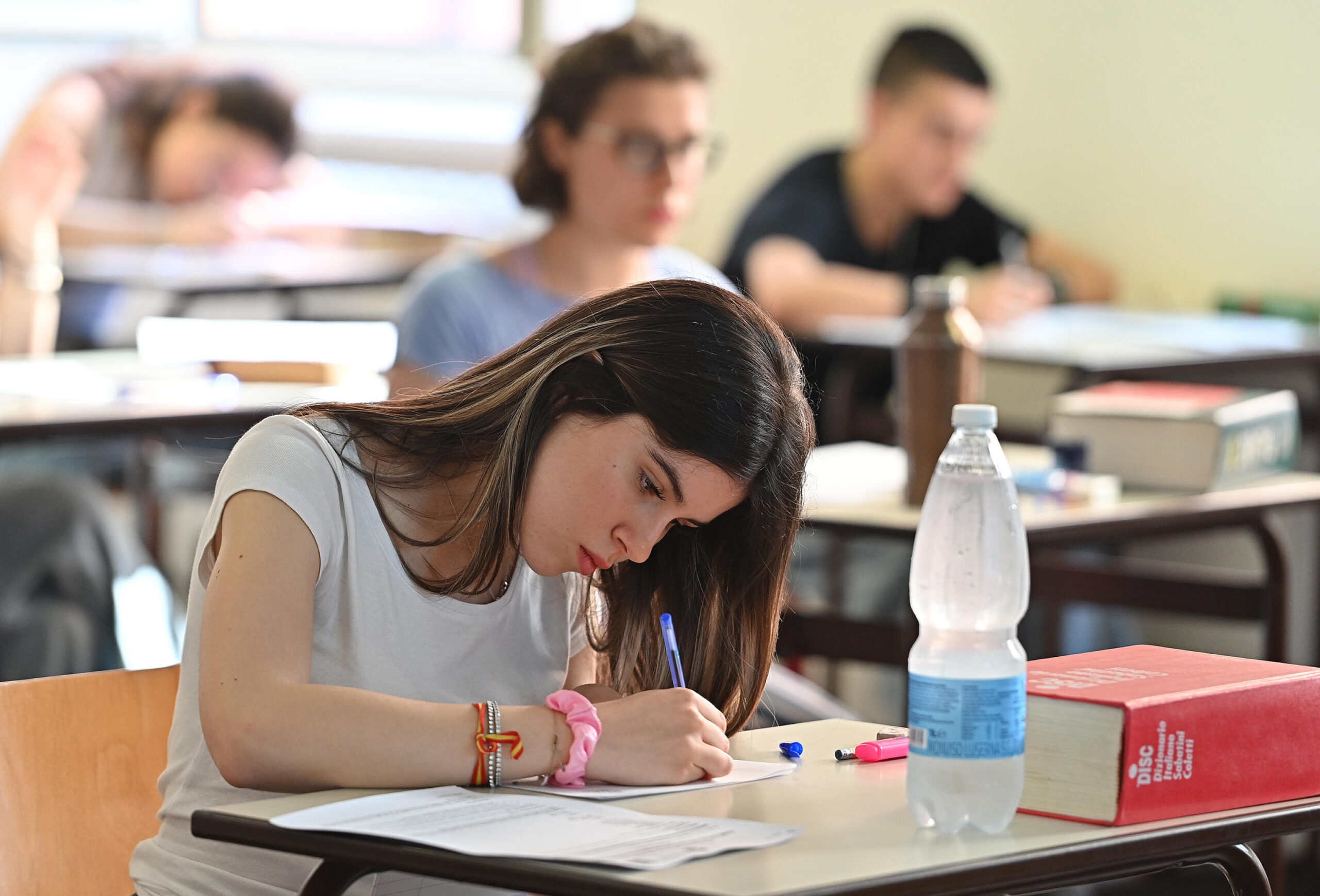Plato to the classical, Montessori to the human sciences, functional studies to the scientific. So today begins the second test for more than 500 thousand students who take the final exam, a crucial stage which, together with the essay in Italian and the oral interview, will contribute significantly to the final grade. The orientation test has a maximum weight of 20 points, and the score will be communicated in the days following the conclusion of the writings. The topics were revealed by the Ministry of Education and Merit in January, sparking mixed reactions among students. At the classical high school, the news that Greek would be the subject of the second test plunged the classics into total despair. As if that were not enough, the teacher who will evaluate their performance is also external. On the contrary, in science high school, the choice of mathematics made many people breathe a sigh of relief. This year, there are 526,317 graduates in total, including 512,530 internal and 13,787 external, under the watchful eye of 14,072 committees distributed in 28,038 classes.
Traces in high schools
The Ministry of Education has released the electronic package key to access the second paper of the secondary school leaving examination. Meanwhile, rumors about the track begin to emerge. The classic was touched by a text by Plato taken from the work Minos or the law for the Greek version. We had not seen Plato in the second round since 2010. He is, however, the most proposed author in modern classical high schools, reaching three appearances: 2004, 2010, 2024. In the human sciences high school, however, there would be a trace of pedagogy with the luminaries Maria Montessori and John Dewey. More specifically, it would be a work-based test Experience and training by Dewey, in which he also talks about the Montessori school in terms of active interaction in the educational environment. On the scientific side, two function study problems and 8 questions, which relate to mathematical analysis, probability calculation, plane and analytical geometry. For linguistics students taking the test in Spanish, an article has been published in the journal The diary signed by Javier Zurro. In the center, the Second World War and the Iberian Civil War.
Traces in the technical and professional field
The test proposed to professional institutes under the old system is the maintenance of a small paint and color workshop, possible breakdowns, prevention and protection measures. At the center, the characteristics and properties of the materials used in the production processes, as well as the technologies and techniques for transforming the products. The case presented for the Business Economics test, however, concerns a typical small and medium-sized Italian company that operates in the electronics, electromechanical and electromedical sectors. The company engages in sustainable development projects and the track also responds to the lack of young people for generational renewal of the workforce. The candidate was asked to prepare the company's income statement and balance sheet.
Subjects in high schools:
- Classical high school: Greek;
- Scientific high school (also for the Applied Sciences option and the Sports branch): mathematics;
- Linguistic high school: Foreign language and culture 3;
- High School of Human Sciences: Human Sciences;
- Higher School of Human Sciences, Economic-Social option: Law and Political Economy;
- Artistic high school: Design disciplines characteristic of the different addresses;
- Musical high school: Theory, analysis and composition;
- Dance high school: Dance techniques.
Subjects in technical institutes:
- Administration, finance and marketing: business economics;
- International relations for marketing: business economics and geopolitics;
- Tourism: tourism and business disciplines;
- Constructions, Environment and Territory: Topography;
- IT and Telecommunications: Systems and networks;
- Graphics and communication: Multimedia design;
- Specialized Agricultural Institute “Production and processing”: Product processing;
- Specialized Agricultural Institute “Viticulture and oenology”: Viticulture and protection of the vine.
Towards the oral exam
Once the written tests are completed, students will find themselves facing the last test: the dreaded oral interview, which will begin on the Monday following the last written test. The interview will begin with the analysis of the material chosen by the commission, which can be a text, a document or an experiment, and the candidate will have to demonstrate the ability to implement interdisciplinary skills. In addition to having to present an experience carried out within the framework of the Transversal Skills and Orientation Course (PCTO), through a report or a multimedia work. The committees will screen 5 candidates per day. However, in certain municipalities, the oral test could be postponed due to the second electoral round scheduled for Sunday June 23 and Monday June 24. If schools are used as polling stations, the start of interviews could therefore be postponed to Tuesday or Wednesday of the same week, to allow counting operations and cleaning of the rooms.
Article currently being updated

